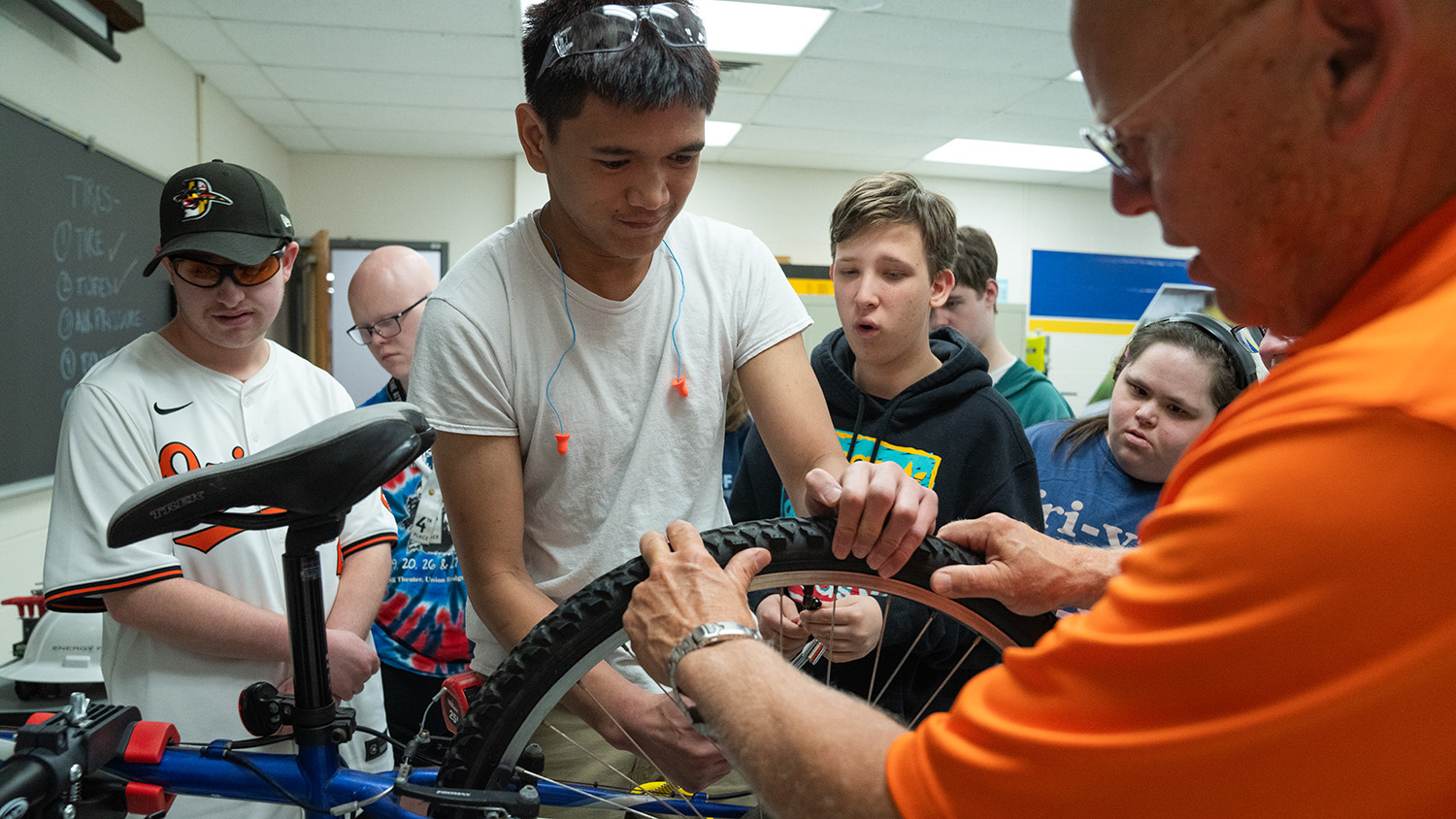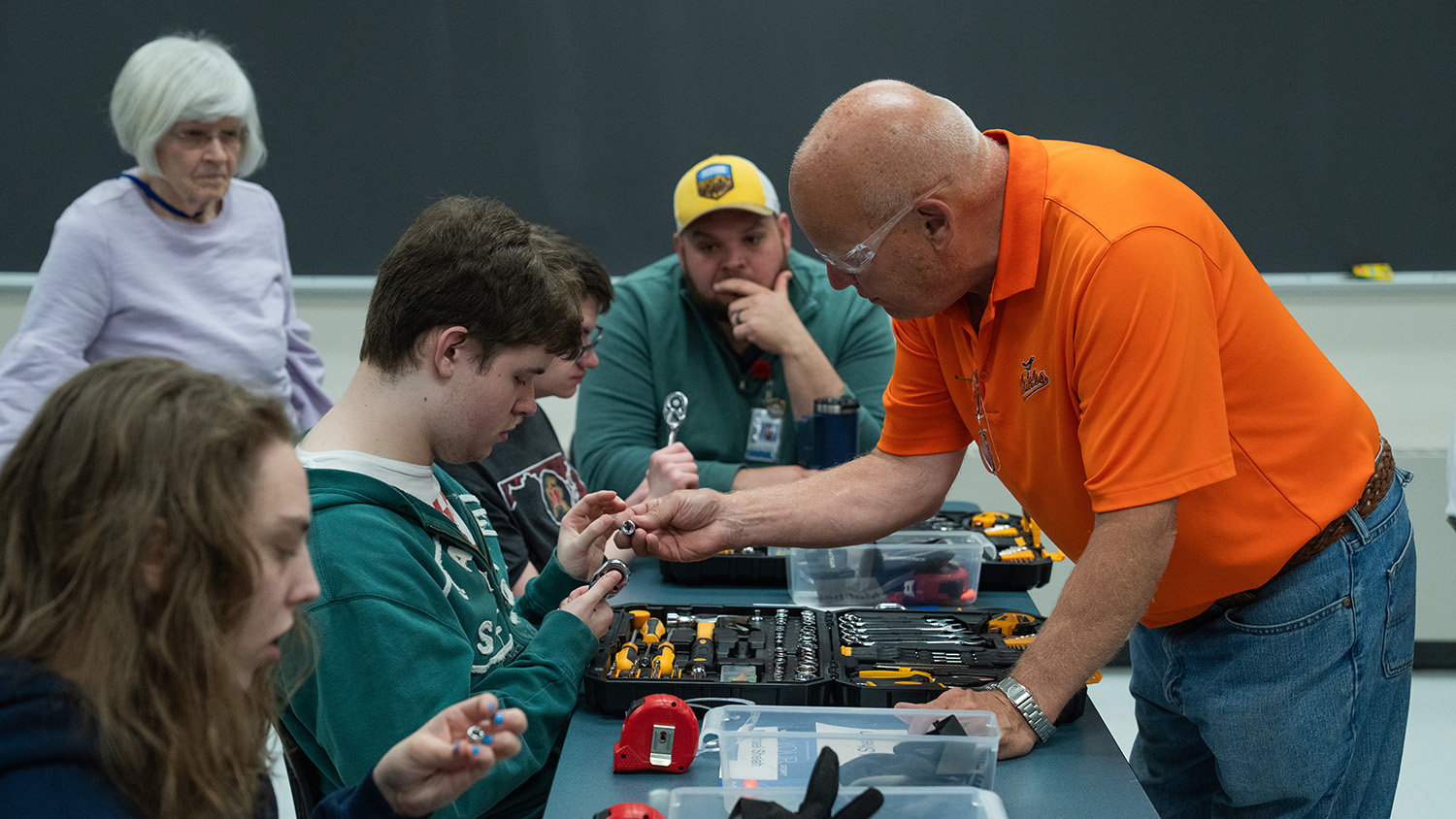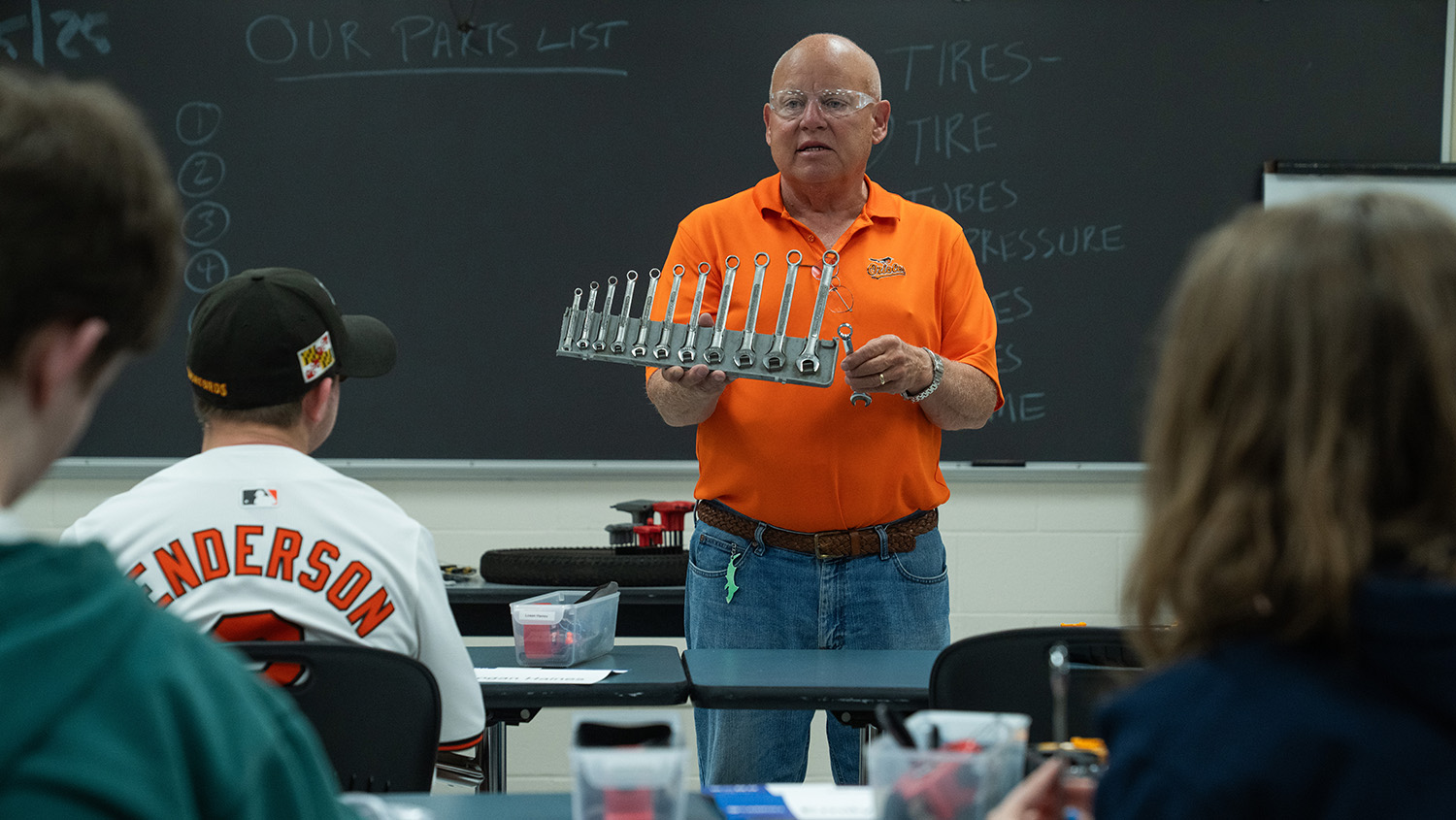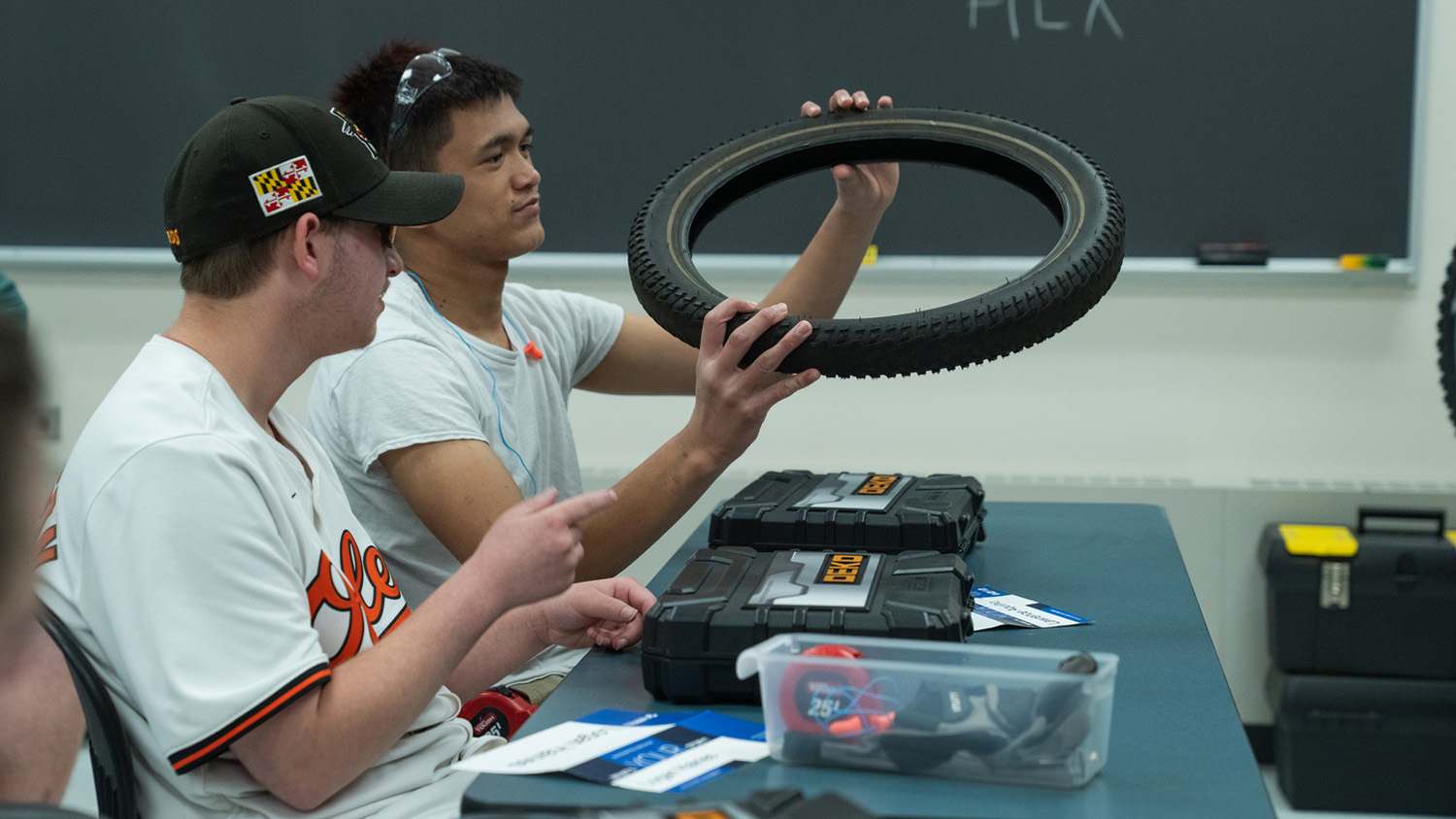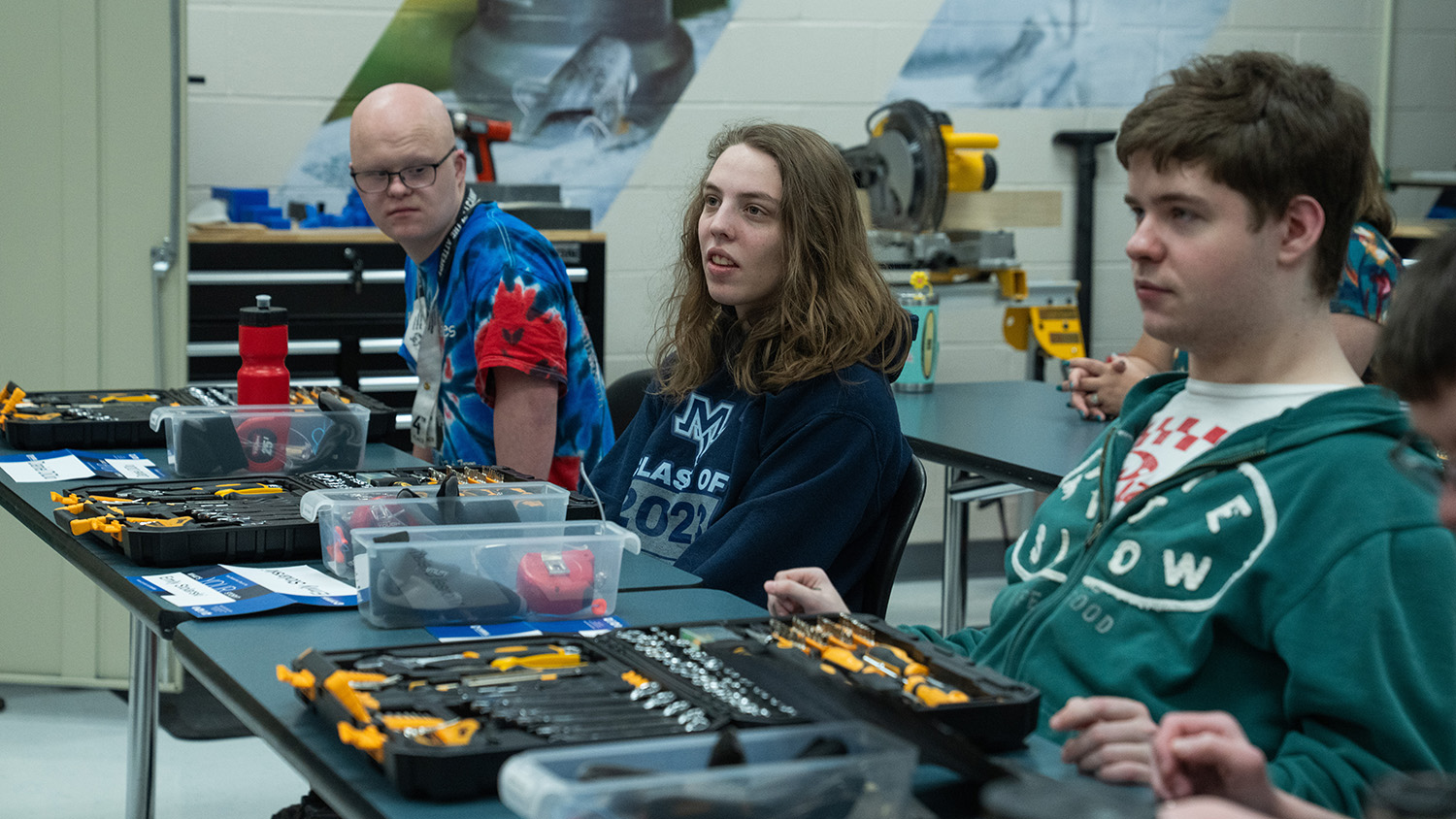Building Confidence: How Carroll’s ST@CC Trades Exploration Class Is Changing Lives
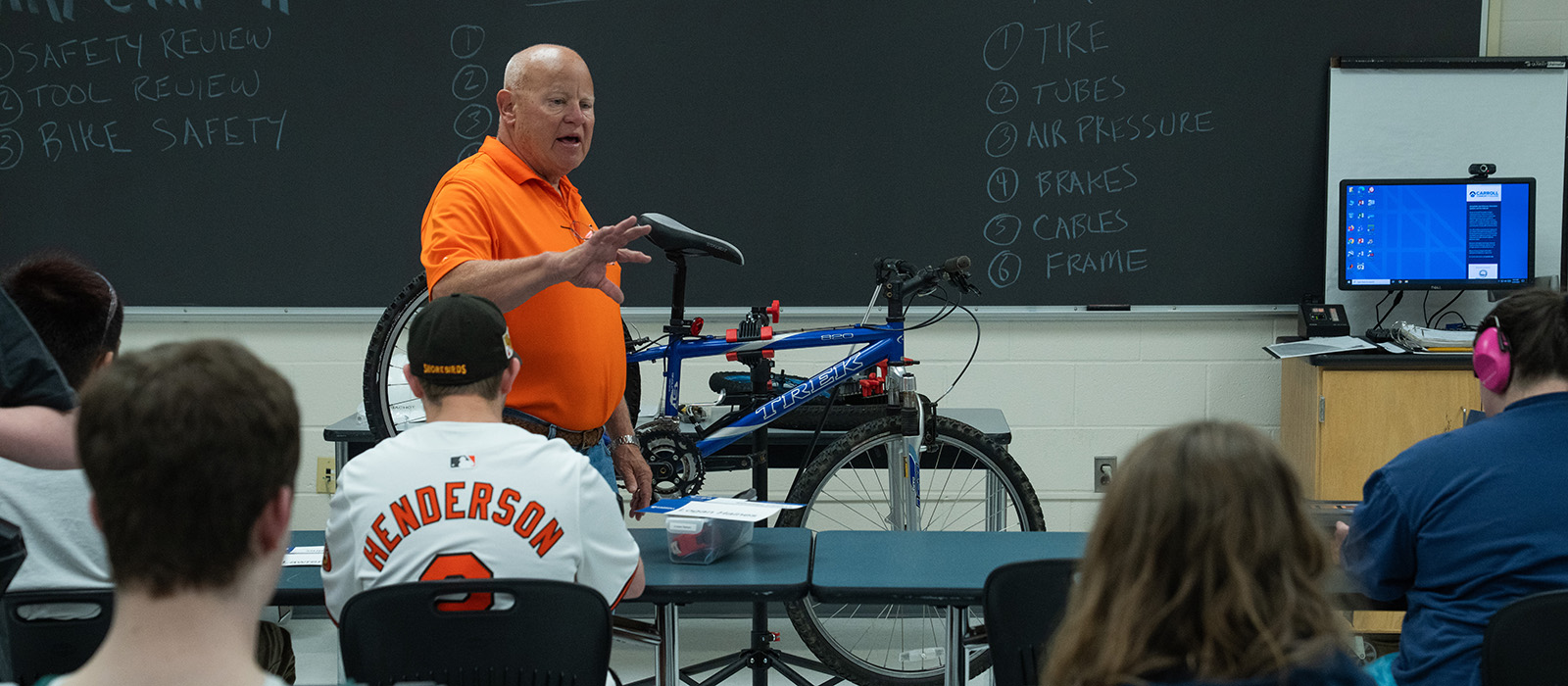
Seamless Transition at Carroll Community (ST@CC) is one of many transition programs Carroll County Public Schools (CCPS) offers that are focused on preparing students with disabilities to become active participants in their community and workplace by opening doors for them—doors to new skills, new possibilities, and newfound confidence. In the newly established Trades Exploration class, students aren’t just learning how to use tools and follow safety procedures; they’re discovering what they’re capable of.
ST@CCing the Deck for Success
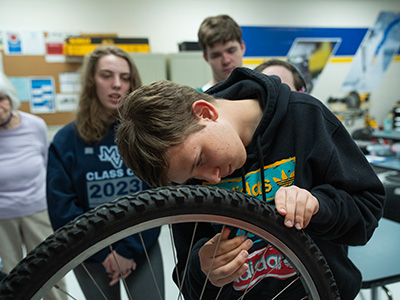
Carroll Community College’s Workforce, Business, and Community Education (WBCE) division has been partnering with the ST@CC program for several years, providing courses and classrooms for learning. The program is intended for 18 to 21-year-olds who did not receive a high school diploma but can remain in the school system until they’re 21 to earn a Maryland High School Certificate of Program Completion.
In the past, the program has offered classes on office skills, money management, fitness, and more. This year, it expanded to include a Trades Exploration class where students learn such skills as how to read a measuring tape, how to use various hand tools, and the importance of industrial safety.
70-year-old Chip Gachot, who brings more than four decades of real-world trade experience to the classroom, started teaching the Trades Exploration class about seven months ago.
Gachot’s son-in-law Ken Osterritter, Assistant Director of Facilities Operations and Auxiliary Services at Carroll, had recommended him for the position. “He said to me, ‘You’re retired. You need something to do,’” Gachot shared with a grin. Though he’d never taught in a traditional classroom setting before, teaching the trades came naturally to him. “I probably taught hundreds of kids before, but not in a classroom setting. My classroom was always in the field.”
When they leave here and they’re sitting across the table from somebody from an HR department who asks them ‘What makes you think you can do this job?’, they can answer, ‘Mr. Chip taught me in class, and I can do that!’
From the Landfill to the Classroom
Initially, the Trades Exploration course was structured around lectures about safety, measurement, and basic assembly techniques. Gachot, however, wanted to figure out a way to make the class more hands-on and engaging for the students. Inspiration struck unexpectedly: “I happened to be at the landfill one day and I saw that Trek bike sitting there and I said, ‘that bike looks like it’s in pretty darn good condition.’”
That serendipitous find launched a whole new focus for the class: bicycle restoration and maintenance. “It actually starts with disassembly and cleaning,” Gachot explained. “The students learn how to put gloves on. They learn how to use different cleaning compounds. They learn to protect their work surfaces. They learn an awful lot about working clean and understanding that if you work clean, it’s a lot easier to work on the parts and assemble things.”
The Trek mountain bike, which retails for about $900, was “much dirtier with a little bit of corrosion” when Gachot first picked it up from the local dump, but thanks to the students’ hard work, its wheels, brake calipers, and other parts are now “nice and clean.” In fact, it looks good as new—one would never guess it had once been neglected and exposed to the elements for long periods.
Useful Skills Beyond the Classroom
The Trades Exploration course isn’t just about learning how to turn ratchets—it’s about preparing students for real-world jobs. “They (ST@CC) needed a class that would give the kids an opportunity to do other things other than the typical food service and janitorial where they often got pigeonholed,” Gachot said. This course is designed specifically to open doors into the manufacturing and production industries, where entry-level positions are abundant in the Westminster, MD area.
A key goal of the class is to build operational and safety habits that can transfer to a real-life workplace. “So when they walk into a project,” Gachot said, “they can look at it and say, ‘OK, I need to wear gloves’ or ‘I need to wear a hardhat’ or ‘I need to wear safety glasses.’”
At the beginning of every class, Gachot usually writes the word “confidence” on the whiteboard. “I’m trying to develop their confidence level,” he said, “so when they leave here and they’re sitting across the table from somebody from an HR department who asks them ‘What makes you think you can do this job?’, they can answer, ‘Mr. Chip taught me in class, and I can do that!'”
Indeed, Gachot believes strongly in the employability of his students. “I think they have a really good opportunity to go out into the workforce and not just make minimum wage, but actually make a decent wage and create a good life for themselves and a career.”
The Road Ahead for Trades Exploration
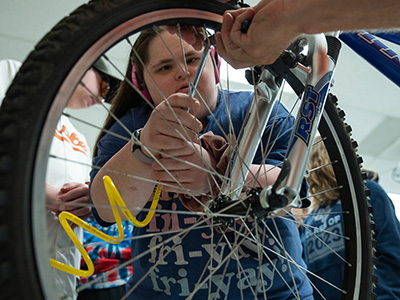
Next year, Gachot plans to expand the class from one hour to two hours, with a break halfway through to help students stay focused. “When they started to get into the bike today, they could have gone another hour on the bike easily,” he pointed out. “You could see they were all engaged. They were all into it.”
Gachot plans to continue rescuing bikes from the landfill for his students to restore. As for the finished bikes: “If a kid in the class really wants or needs a bike, it might be a good idea to give it to them,” Gachot said. Otherwise, the bikes might be sold to help fund course materials, such as instruction manuals, for upcoming classes.
Gachot hopes that with his training and encouragement, his students are ready to take their next steps into meaningful employment and rewarding futures. “They can do things I don’t think people imagine they can do,” he said. “It excites them to work on stuff. You see them smile. When that spark goes off in them, it makes me happy too.”
